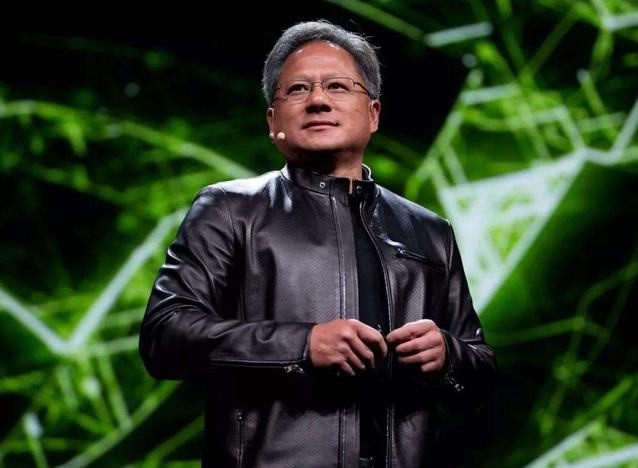In the fierce game of the global technology map, United States AI chip giant NVIDIA (NVIDIA) has always stood on the cusp, and every voice of its founder and CEO Jensen Huang has affected the nerves of the entire industry. Recently, in a new round of discussions on United States' chip export controls to China, Huang Jenxun, with his unique perspective and far-reaching strategic vision, explained NVIDIA's survival and future prospects in this complex situation, not only showing the responsibility and responsibility of enterprises, but also revealing the profound changes in the global chip industry pattern.
Comply with regulations and be flexible: NVIDIA's art of compliance
In the face of the new chip export control regulations issued by the Bureau of Industry and Security (BIS) of the United States Department of Commerce, Huang first emphasized NVIDIA's strict compliance with policies and regulations. He is well aware that in today's globalized world, no company can operate independently from the framework of national policies, especially in highly sensitive areas related to national security and core technologies. Therefore, while actively responding to market changes, NVIDIA has always put compliance in the first place, ensuring that all business activities are carried out within the scope of the law.
Huang's statement is not only a support for the United States government's decision-making, but also a firm transmission of confidence in NVIDIA's global customers. He understands that only by maintaining a high level of compliance can he earn trust in the global marketplace and stay ahead of the competition. This art of adapting to compliance has become the key to NVIDIA's steady progress in a complex international environment.

Pictured: Jensen Huang on United States chip control: Nvidia's survival in the chip war
Deeply cultivate the Chinese market and seek a win-win situation
Although the export controls have had a disruptive impact on Nvidia's business in the Chinese market, Huang has not given up on this promising market. Instead, he sees a huge demand for technologies such as high-performance computing and artificial intelligence in the Chinese market, as well as the irreplaceability of Nvidia's products in China's data center business. Therefore, on the premise of complying with laws and regulations, NVIDIA continues to increase its investment in the Chinese market and strives to find a balance between compliance and business development.
According to the financial report, despite many challenges, NVIDIA's revenue in the Chinese market has achieved significant growth, which fully proves the effectiveness of its marketing strategy. Huang understands that the Chinese market is not only an important source of revenue for NVIDIA, but also an important stage for its technological innovation and business expansion. Therefore, he emphasized that NVIDIA will continue to be committed to serving the Chinese market and growing together with Chinese customers to achieve a win-win situation.
Energy choices from a sustainability perspective
When talking about the renewable energy needed for data centers, Huang singled out nuclear power as a viable option. This view not only demonstrates his deep insight into energy issues, but also reflects NVIDIA's forward-looking layout in sustainable development. Huang believes that as the world's data volume explodes, the demand for energy in data centers will continue to rise. Therefore, it is important to find efficient and clean energy solutions to reduce operating costs and carbon emissions.
As a clean energy source with high energy density, nuclear energy has the advantages of stability, reliability, low carbon and environmental protection, and is one of the ideal choices for data center energy supply. Huang's view undoubtedly points the way for sustainable development for NVIDIA and the entire industry.
Supply chain layout from a global perspective
Today, when the global chip industry chain is becoming increasingly close, Huang is soberly aware that it is not easy for United States chip manufacturers to achieve supply chain independence. He expects the process to take at least 10 to 20 years. Therefore, while adhering to the globalization strategy, NVIDIA is also actively seeking ways to diversify its supply chain. By working closely with partners around the world, NVIDIA is working to build a more stable and reliable supply chain system to meet the challenges that may arise in the future.
Technological innovation leads the future
Under Huang's leadership, NVIDIA has always regarded technological innovation as a core driver of its growth. According to the financial report, NVIDIA's revenue in the data center business area has increased significantly, mainly due to its strong technical strength and continuous introduction of innovative products. In particular, the launch of the Hopper platform series of GPUs has set a new benchmark for NVIDIA in the high-performance computing and artificial intelligence markets.
Huang understands that only by innovating can we stay ahead of the competition. Therefore, he encouraged the team to continue to explore new technologies and applications, and constantly promote product iteration and upgrading to meet the increasingly diverse needs of customers.
Epilogue
Huang's remarks on chip control in United States are not only a profound analysis of Nvidia's current situation, but also a clear plan for future development strategies. In the smoke of the chip war, Nvidia has shown strong vitality and competitiveness with its unique strategic wisdom and firm execution. We have reason to believe that in the coming days, NVIDIA will continue to lead the development trend of the global chip industry and contribute more wisdom and strength to the progress of human society.






